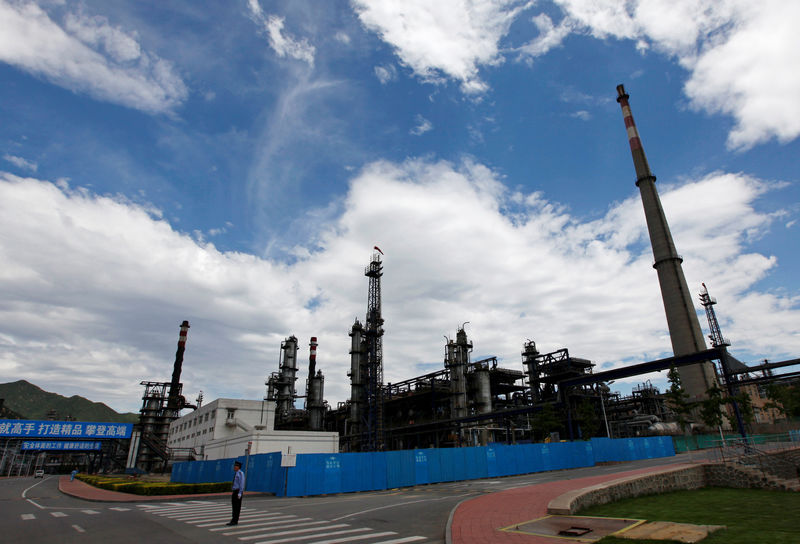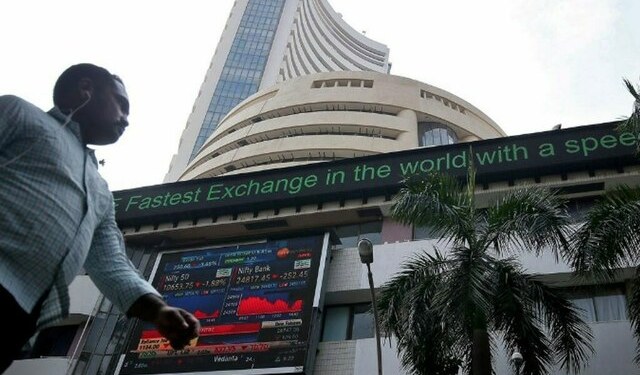 © Reuters. FILE PHOTO: A security personnel stands guard at the Yanshan oil refinery of Sinopec Corp. in Beijing
© Reuters. FILE PHOTO: A security personnel stands guard at the Yanshan oil refinery of Sinopec Corp. in BeijingBy Amanda Cooper
LONDON (Reuters) – Oil eased below $70 a barrel on Monday as rising U.S. output undermined efforts led by OPEC and Russia to tighten supplies, but prices were still on track for their strongest start to the year in five years.
Brent crude futures () were down 64 cents at $69.88 a barrel by 1130 GMT, while U.S. West Texas Intermediate (WTI) crude futures () were down 36 cents at $65.78 a barrel.
So far this month, the Brent has risen by 6.3 percent, making this its biggest rise in January since 2013.
A key driver has been the dollar, which has lost 3.2 percent against a basket of major currencies () so far this year, partly pushed down by suggestions from U.S. Treasury Secretary Steven Mnuchin that the U.S. administration favored a weaker currency.
A falling dollar tends to support oil, which is priced in the U.S. currency, by making it cheaper for holders of other currencies.
Support has also come from a large premium in the front-month Brent oil contract over those for future delivery, as investment in crude futures and options reached a new record high last week.
“The market is bullish. One side that could correct significantly could come from the strength in the U.S. dollar,” PVM Oil Associates strategist Tamas Varga said.
“Undoubtedly, whatever the strategy is of Donald Trump and his finance ministry, they managed to support oil prices in the last week by talking the dollar down,” he said, adding that oil prices would slip if the dollar changed direction.
Despite generally bullish sentiment, analysts said the market had been dented by rising output in North America.
“We believe that today’s oil prices project a too rosy picture, stick to our cautious view, and view the market as being at risk from profit-taking,” Julius Baer’s head of macro and commodity research Norbert Ruecker said.
U.S. output
U.S. energy firms added 12 drilling rigs for new production in the week to Jan. 26, taking the total to 759, Baker Hughes reported.
U.S. production is now on par with top exporter and OPEC kingpin Saudi Arabia. Only Russia produces more, averaging 10.98 million bpd in 2017.
Fusion Media or anyone involved with Fusion Media will not accept any liability for loss or damage as a result of reliance on the information including data, quotes, charts and buy/sell signals contained within this website. Please be fully informed regarding the risks and costs associated with trading the financial markets, it is one of the riskiest investment forms possible.
Source: Investing.com




























